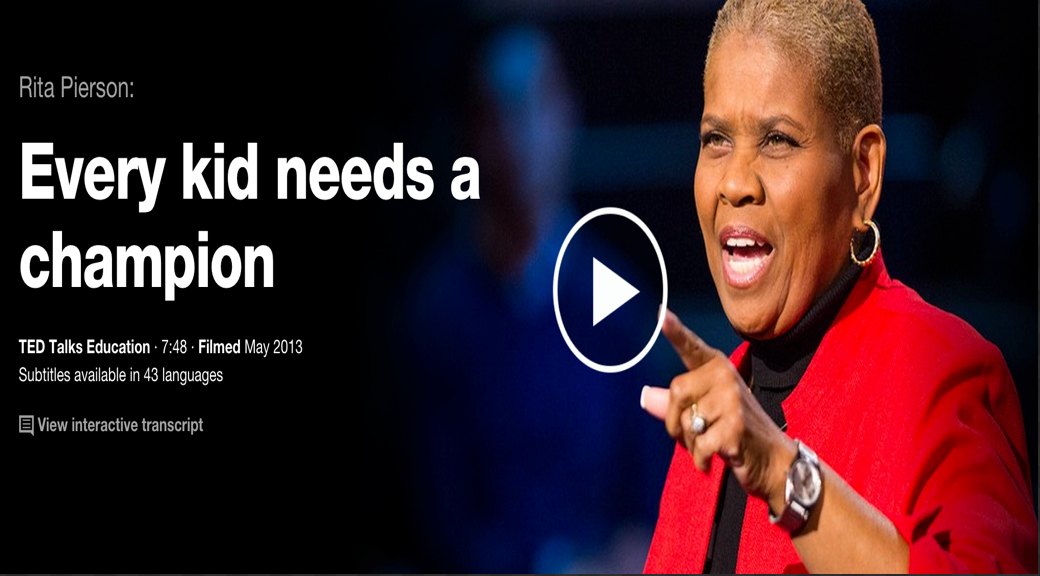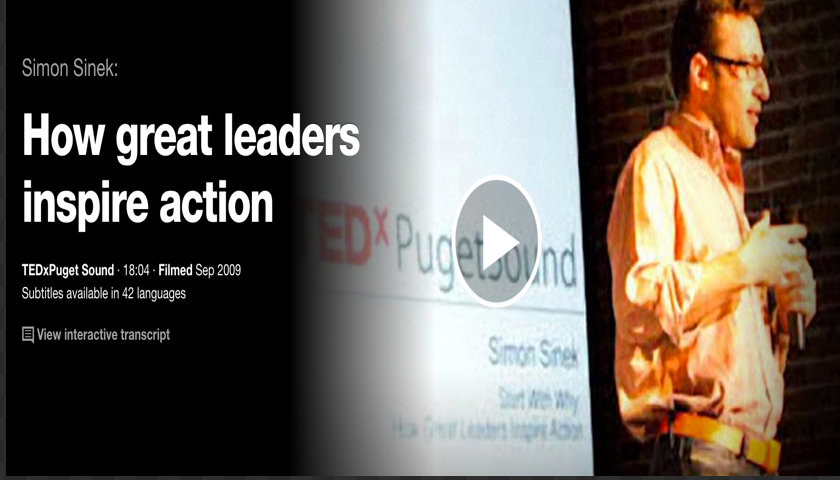Here are five of the ‘classic’ TED talks we think every teacher should watch and share with students, or better yet, watch together in class and engage students in constructive discussion around their themes. The speakers are leading thinkers in their fields and the themes covered include motivation (Dan Pink), leadership (Simon Sinek), grit ( Angela Duckworth), education death valley (Sir Ken Robinson), and belief in students potential (Rita Pierson). Enjoy!
1- Every Kid Needs A Champion by Rita Pierson
Rita Pierson, a teacher for 40 years, once heard a colleague say, “They don’t pay me to like the kids.” Her response: “Kids don’t learn from people they don’t like.’” A rousing call to educators to believe in their students and actually connect with them on a real, human, personal level.
2- How to Escape Education’s Death Valley by Sir Ken Robinson
Sir Ken Robinson outlines 3 principles crucial for the human mind to flourish — and how current education culture works against them. In a funny, stirring talk he tells us how to get out of the educational “death valley” we now face, and how to nurture our youngest generations with a climate of possibility.
3- The Key to Success ? Grit by Angela Lee Duckworth
“Leaving a high-flying job in consulting, Angela Lee Duckworth took a job teaching math to seventh graders in a New York public school. She quickly realized that IQ wasn’t the only thing separating the successful students from those who struggled. Here, she explains her theory of “grit” as a predictor of success.”
4- How Great Leaders In spire Action by Simon Sinek
“Simon Sinek has a simple but powerful model for inspirational leadership all starting with a golden circle and the question “Why?” His examples include Apple, Martin Luther King, and the Wright brothers…”
5- The Puzzle of Motivation by Dan Pink
“Career analyst Dan Pink examines the puzzle of motivation, starting with a fact that social scientists know but most managers don’t: Traditional rewards aren’t always as effective as we think. Listen for illuminating stories — and maybe, a way forward.”











